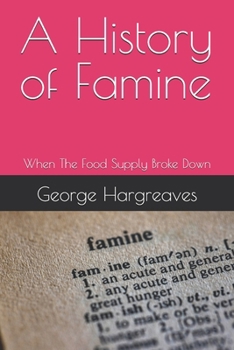A History of Famine: When The Food Supply Broke Down
From the banks of the ancient Nile to the plains of imperial China, the fear of starvation has been a constant and powerful force, shaping the rise and fall of civilizations. A History of Famine embarks on a sweeping journey across time and continents to explore humanity's long and often brutal struggle against hunger. This detailed account examines how societies have been brought to their knees not just by natural disasters like drought and flood, but by the complex interplay of politics, economics, and war. It moves beyond simple explanations of scarcity to reveal how food has been weaponized in conflicts like the Thirty Years' War, how government policy turned crop failure into catastrophe during the Irish Great Hunger, and how political ideology manufactured the deadliest famines of the twentieth century.
The narrative delves into the specific circumstances of numerous historical crises, vividly detailing the societal breakdown and human desperation that defined them. Readers will discover the sophisticated granary systems of the Roman Empire and Qing China, designed to hold starvation at bay, and witness how their failure led to dynastic collapse. The book explores the devastating impact of climate shifts like the Little Ice Age, which brought centuries of cold and want to the globe, and recounts the harrowing tales of the terror-famine in Soviet Ukraine and the cataclysm of Mao's Great Leap Forward.
This comprehensive history also traces the evolution of our understanding of famine itself, moving from the Malthusian idea of inevitable scarcity to Amartya Sen's groundbreaking "entitlement" theory, which explains how hunger can exist even amidst plenty. The story is brought into the modern era with analyses of the crises in Biafra, Ethiopia, and North Korea, where famine became a tool of war and political control. By chronicling humanity's enduring battle for subsistence from the age of pharaohs to the present day, this work offers a vital perspective on the fragility of our own food systems and the political will required to ensure that the food supply never breaks down.
Related Subjects
History




